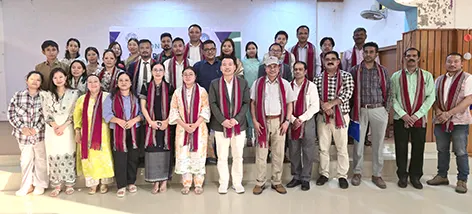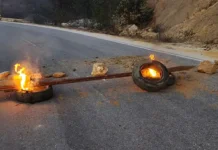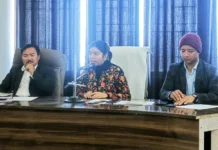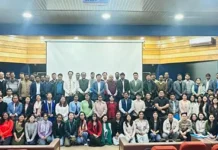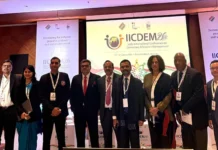ITANAGAR, 15 Nov: A team from the Indian Council of Medical Research organised a ‘Leadership engagement workshop on suicide prevention’ at the Don Bosco Youth Centre here on Saturday, bringing together heads and senior representatives from 19 educational institutions, including government and private secondary schools, higher secondary schools,and colleges.
This was the second batch of institutes, following the successful training programmes conducted at 35institutions in the Itanagar Capital Region (ICR) and Papum Pare district earlier this year. The participating institutions included NIT Jote, Dera Natung Government College, Don Bosco College, Government Higher Secondary School Ganga Basti, PM SHRI Government Higher Secondary School Arunodaya, Government Secondary School Chimpu, VKV Chimpu, Regional Institute of Nursing, Kingcup Public School, Vivekananda Central School, Arunachal Valley Public School, Donyi Polo BEd College, Government Higher Secondary School Leporiang, Green Mount School Itanagar, JNK Public School, Garden Dew School, Nichiphu Foundation School, Donyi Polo Vidya Bhavan, and Rajiv Gandhi Government Polytechnic College.
The programme began with an opening address by principal investigator (PI) Dr Tarun Mene, who highlighted the increasing pressures faced by students and the urgent need for institution-level preparedness and leadership involvement in strengthening the wellbeing ecosystem.
This was followed by introductory remarks from the NIT Jote director, who emphasised the importance of a mental health model “already being implemented within the NIT campus, consisting of mentor-mentee programmes, and mid-semester evaluation of students,” among other things. He also emphasised on having more capacity-building programmes that enable educational leaders to build healthier institutional environments for young people.
The workshop featured intensive technical sessions led by the core research team. Co-PIT Dr KakaliGoswami delivered a detailed session on ‘Understanding mental health and wellbeing’, during which she explained the current emotional landscape of children and youths, the impact of academic and social stressors, and the need for everyday supportive practices in institutional spaces.
Co-PI Dr Dharmeshwari Lourembam conducted the session on ‘Child, adolescent & youth development and mental health’, addressing behavioural changes observed among today’s students, the influence of digital exposure and cultural transitions, and ways institutions can create developmentally responsive support systems.
Research Scientist-II Dr Leeyir Ete led the final technical segment on ‘Action planning: Mental health support and protocols in our institutions’, guiding the participants through practical frameworks for improving referral pathways, documenting cases of student distress, establishing wellbeing committees and conducting periodic wellbeing audits.
A major theme of the workshop was the formation of crisis response teams (CRTs) for suicide preventionwithin each institution. This component was discussed thoroughly in light of recurring student suicides, with facilitators emphasising that every educational institution must have a trained crisis team capable of responding promptly, coordinating with families, reducing panic, and ensuring safety during high-risk situations.
More than 30 participants were guided on role assignments, emergency protocols and post-crisis support strategies. Leaders from the institutions collaborated to draft initial roadmaps for setting up CRTs, integrating wellbeing personnel, and strengthening routine monitoring mechanisms on their campuses.
The workshop concluded with a shared commitment from all the institutions to prioritise student mental health, implement the action plans developed during the sessions, and work collectively towards creating safer, more nurturing, and future-ready educational environments across the ICR.

